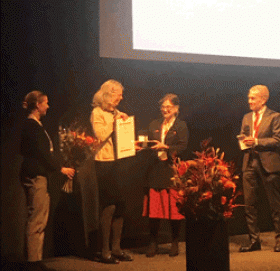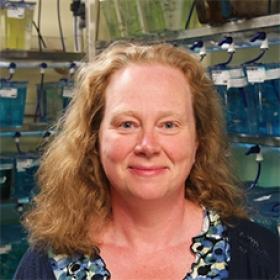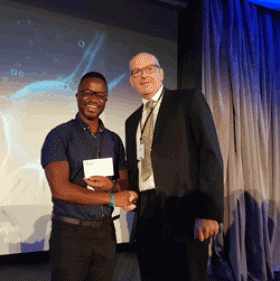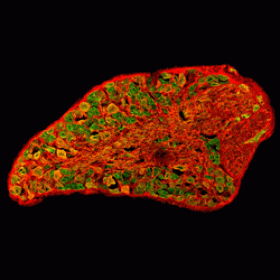Latest news


Huge congratulations to Professor Joanna Wardlaw (Centre for Clinical Brain Sciences) who was awarded the Karolinska Stroke Award for Lifetime Contribution to Excellence in Advancing Knowledge in Stroke. This is awarded by the Karolinska Institute in Stockholm and has been awarded since 2004 in alternate years.

New research led by Professor Catherina Becker (Centre for Discovery Brain Sciences) has provided fresh insights into how zebrafish repair their damaged nerve connections which could aid the development of therapies for people with spinal cord injuries.

An exhibition of vibrant portraits, organised by the University’s Centre for Cognitive Ageing and Cognitive Epidemiology, is set to honour a remarkable group of older people credited with fundamentally altering our understanding of ageing.

A new study led by Dr Martin Corley (School of Philosophy, Psychology and Language Sciences) published in the Journal of Cognition has shown that the verbal and physical signs of lying may be harder to detect than people believe.

The maintenance of neurotransmission by synaptic vesicle recycling is critical to brain function. During intense brain activity the dominant synaptic vesicle recycling mode is activity-dependent bulk endocytosis (ADBE), suggesting that ADBE has a key role in neurotransmission, although the exact role has yet to be determined.

Huge congratulations to Dr Sarah McGlasson (UK Dementia Research Institute) who was presented with the UK Scopus Early Career Researcher award for Medicine at an award ceremony on the 4th of October at The Royal Society in London.

Congratulations to Dr Gashirai Mbizvo (Muir Maxwell Epilepsy Centre) who won the prize for best Platform Presentation at the International League Against Epilepsy's British Chapter in Birmingham last week!
This comes after also winning the pize at the Scottish Association of Neurological Sciences this time last year!

Congratulations to Dr Grant Mair (Centre for Clinical Brain Science) for winning the Lucien Appel prize at European Society of Neuroradiology meeting in Rotterdam!

Many types of neuromuscular disease, such as spinal muscular atrophy (SMA) and Charcot-Marie-Tooth disease (CMT), share similar symptoms. A new study, published by a research team from the University of Edinburgh, working with colleagues at UCL, Dundee University and the University of Cologne, has shown that these similar symptoms are likely caused by overlapping molecular mechanisms.

